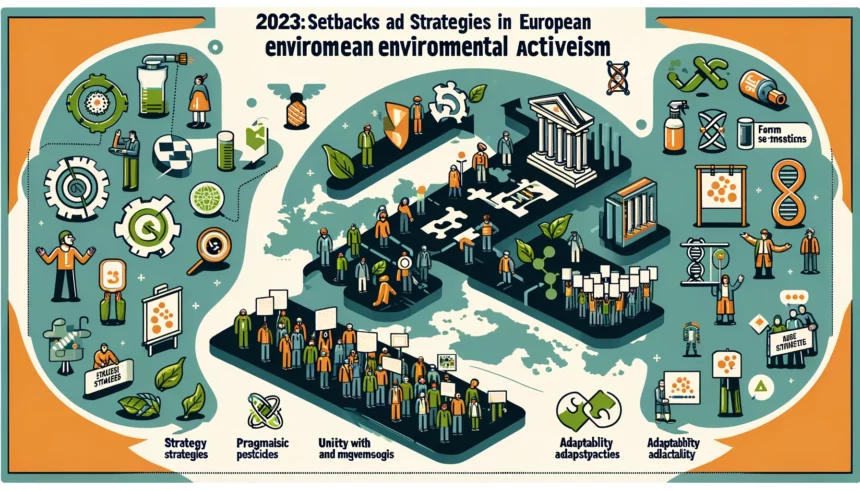2023 has been a year of reflection and recalibration for environmental advocates across Europe, facing unexpected setbacks in their campaigns against the use of pesticides and genetically modified organisms (GMOs). Central to their challenges was the European Commission’s unexpected move to extend the authorization of glyphosate, a herbicide mired in controversy, for an additional decade. This decision, along with the European Parliament’s surprising dismissal of the Sustainable Use Regulation (SUR), has thrown a wrench into the aspirations encapsulated by the EU’s Farm2Fork strategy. Moreover, the dialogue surrounding the deregulation of new genomic techniques (NGTs) has ignited a contentious debate over the future of agriculture and seed breeding, putting environmental campaigners on the defensive.
The Pitfalls of Inflexibility
The environmental movement, characterized by its fervent dedication to planetary health, has historically taken a staunch stance on issues like pesticide regulation. This unwavering commitment, particularly evident in the glyphosate discussions, has proven to be a double-edged sword. A proposal to gradually diminish glyphosate usage, while simultaneously fostering agricultural innovation, could have been a more pragmatic and influential approach. Instead, the activists’ rigid stance left them marginalized in critical policy discussions, underscoring the need for more nuanced negotiation tactics and the ability to find middle ground.
Bridging the Gap Between Idealism and Realism
The environmentalists’ ambitious targets, such as achieving an 80% reduction in pesticide usage, have often been at odds with the on-the-ground realities of agriculture and legislative processes. This disconnect between high aspirations and practical feasibility has been a stumbling block, diminishing their ability to influence policymaking effectively. Moreover, the division within the environmental community regarding NGTs has highlighted internal conflicts, weakening their collective voice at a pivotal moment when the EU considers relaxing regulations on gene-edited crops.
The Dangers of a Constricted Focus
The environmental movement’s reliance on a concentrated group of influential figures and its antagonistic posture towards regulatory bodies have further impeded its progress. The departure of significant allies, such as Frans Timmermans, along with a combative approach to scientific institutions, has left the movement isolated. This isolation comes at a time when building strategic partnerships and respecting diverse perspectives are indispensable. Consequently, the activists’ lobbying efforts have suffered, and the potential for broader support has diminished.
The challenges encountered by European environmental activists in 2023 serve as a critical reminder of the difficulties inherent in influencing EU policy. As the continent looks ahead, the environmental movement is at a crossroads, necessitating a strategic reassessment of its approaches. By adopting a more flexible stance and expanding its alliances, it can ensure its continued relevance and effectiveness in championing Europe’s environmental agenda. The experiences of the past year highlight the essential roles of adaptability, solidarity, and respectful engagement in advancing the cause of environmental stewardship.
















